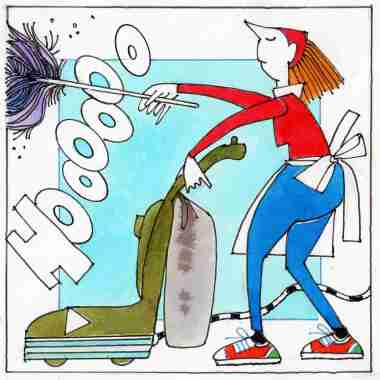Snod
This useful word has many meanings in the Dictionaries of the Scots Language (DSL). As an adjective it can be paired with both people and things. Someone who is snod is
“neat, trim, spruce, [or] smart” whilst snod things are “tidy, compact, well laid out, [or] in good order”.

The term’s long pedigree dates back to the eighteenth century, with early examples occurring within Allan Ramsay’s poetry. In 1719 he uses it to describe someone as
“A Black-a-vic'd [dark-complexioned] snod dapper Fallow”,
whilst in 1721 it appears in the line:
“She kept her Housie snod and been”.
Tidiness and orderliness are clearly productive topics, as snod has given us many associated words during its history. In 1826, John Galt refers to a servant in the Last of Lairds as
“snodless, snoodless, and shodless”
to demonstrate their untidiness.
Seventy years later, we find reference to
“The merits o’ … different dressmakers an’ the snodness o’ their handiwark”
in Alick Blair’s Rantin Robin.
And in the twentieth century, Charles Murray mentions a
“snod dykit feedle [neatly walled field]”
in There’s Aye a Something (1933).
But is this once-popular term still used in the twenty-first century? Seemingly yes! It crops up in the Press and Journal in March 2023:
“A snod wee country kirk, blessed with an honest preacher and a gifted organist. The congregation were halfway through a hymn, singing with confidence, faith defiant against a dull culture of secularism and atheism. That was when the organist went silent”.
This Scots Word of the Week comes from Dictionaries of the Scots Language.
Visit DSL Online at https://dsl.ac.uk